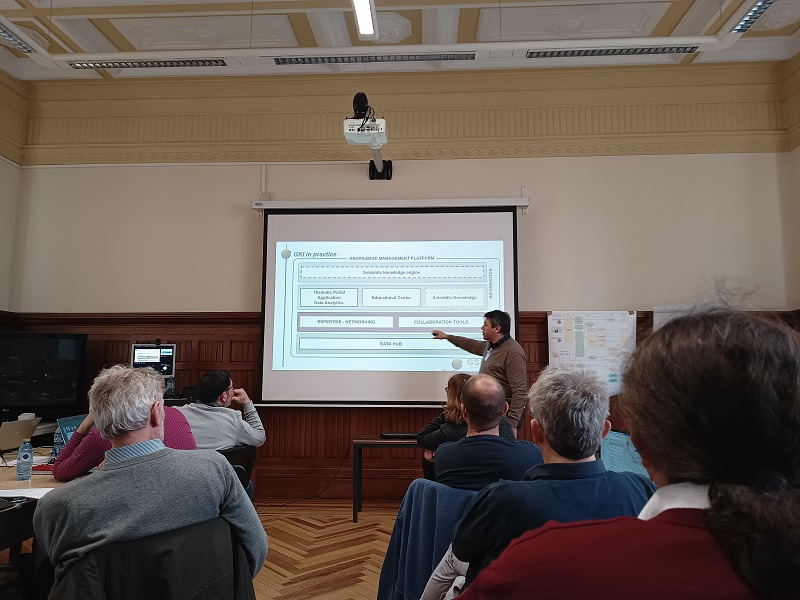On 8-9 March 2023, the Geological Institute (IGME) in Madrid held a working meeting of the task group No. 7 (WP7) of the European project Geological Service for Europe (GSEU). The Polish Geological Institute - NRI was represented during the meeting by Marcin Słodkowski, Katarzyna Jóźwik and Urszula Stępień from the Geological Mapping Department.
The main task of the group named European Geological Data Infrastructure (EGDI) is to maintain, modernise, optimise and expand the EGDI site endorsed and managed by EuroGeoSurveys. The site will be expanded with new thematic data that will be compiled as part of substantive task groups of the GSEU project.
The Madrid meeting, preceded by numerous teleconferences and discussions in relevant thematic subgroups, was organised to make arrangements regarding the details of work organisation and the possibility of using the Agile methodology for the purpose of task management and software development, i.e. desired elements of the EGDI system.
It involved the confirmation of earlier arrangements on carrying out the work simultaneously in five main teams dealing with the following aspects: Requirement Analysis, Data Analysis and Standards, System Analysis, Software Development, User Support.
The team of PGI-NRI experts will take part in work on data analysis and standards as well as software development.

Presentation on the possibility of using semantic technologies given during the meeting (Photo: U. Stępień)
Aside from issues related to work management and division, the meeting also involved a presentation of the main assumptions of the planned infrastructure of the so-called EGDI knowledge base. It will consist of four basic “layers”: Information, Knowledge Areas, Expertise, Data Hub – EGDI Components.
The EGDI knowledge base will operate using Linked Data formats. This type of data consists of graphs that represent knowledge transferred in defined connections between published spatial objects.
A native language search engine will be developed to make it easy for users to search the knowledge base. However, the implementation of such a search engine required semantic and spatial data harmonisation as well as revision of the discipline-specific vocabulary.














 PGI-NRI offer
PGI-NRI offer Mineral resources of Poland
Mineral resources of Poland  Oil and Gas in Poland
Oil and Gas in Poland 



 Subscribe to RSS Feed
Subscribe to RSS Feed